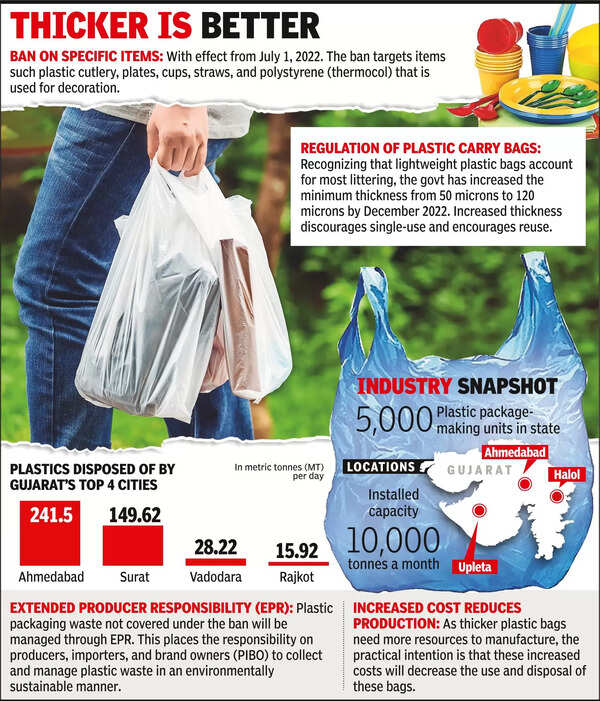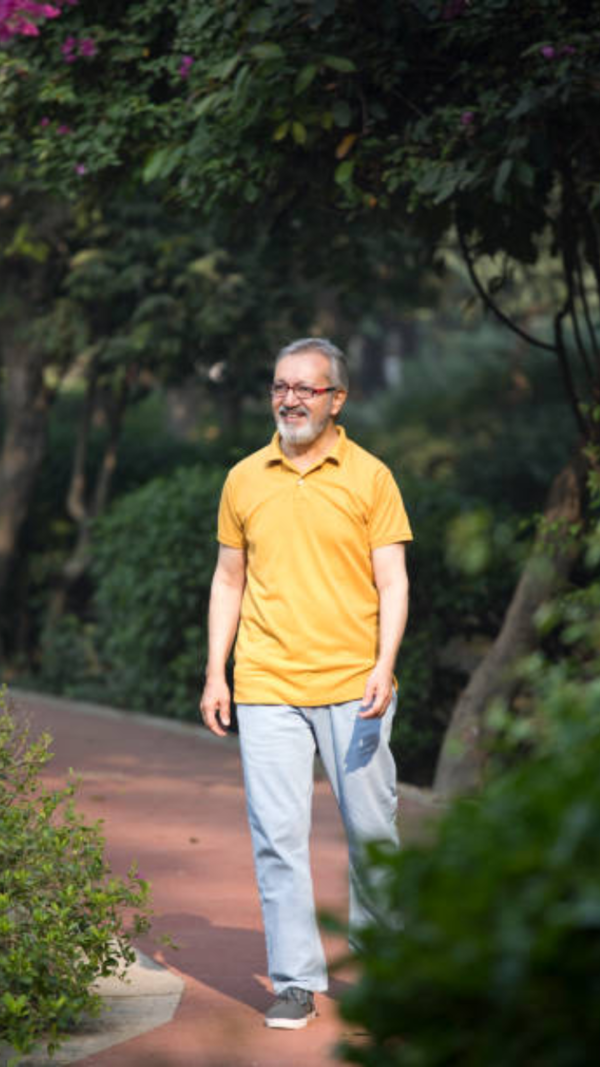- News
- City News
- rajkot News
- Gujarat’s thin plastic conundrum
Trending
Gujarat’s thin plastic conundrum

Despite the regular drives by the civic bodies, plastic bags less than 120 microns continue to find their way into the markets with their use rampant at grocery stores, vegetable carts, paan kiosks and other small establishments.

Take Rajkot, Saurashtra's biggest commercial centre. Every month, the Rajkot Municipal Corporation (RMC) seizes around 150-200 kg of banned plastic bags every month during the random raids conducted to check if Plastic Waste Management Rules.
RMC’s environment engineer, Nilesh Parmar, informed, “We regularly conduct raids and seize around 150 to 200 kg polythene bags every month. We also impose fines. We suspect that this plastic is manufactured in central Gujarat and it is sent to Rajkot without proper billing.” Sources indicate that the bags are so inexpensive that traders can afford to use them and get away with paying penalties that depend on the scale of sale or production. The aim behind banning these thin plastic bags as they don’t decompose easily. Over time, these plastic bags break down into
microplastics, which enter the human food chain. An environmental activist in Bhavnagar, Dr. Tejas Doshi, who distributes cloth bags in the vegetable market, says, “It takes hundreds of years for this thin plastic to decompose. It is wrecking wildlife and polluting oceans too.”
(With inputs from Sachin Sharma in Vadodara and Yagnesh Mehta in Surat)
We also published the following articles recently
Gujarat's thin plastic conundrum
Discover how Gujarat's big cities have been tackling the issue of banned plastic bags less than 120 microns since 2016. Despite ongoing efforts by municipal corporations, these bags are still prevalent in the market. Learn about the environmental and health risks posed by these plastics and the significance of preventing them from decomposing.
Discover how Gujarat's big cities have been tackling the issue of banned plastic bags less than 120 microns since 2016. Despite ongoing efforts by municipal corporations, these bags are still prevalent in the market. Learn about the environmental and health risks posed by these plastics and the significance of preventing them from decomposing.
International Plastic Bag Free Day: An average person uses 83 plastic bags per year
Discover the global issue of single-use plastic bags with a recycling rate of only 1%. Learn about the environmental impact and ways to make a difference. Find out how industries contribute to plastic pollution and explore simple solutions to reduce waste.
Discover the global issue of single-use plastic bags with a recycling rate of only 1%. Learn about the environmental impact and ways to make a difference. Find out how industries contribute to plastic pollution and explore simple solutions to reduce waste.
Exclusive- Krishna Kaul on International Plastic Bag Free Day: Embracing paper, jute, and recyclable bags over plastic isn't just a trend
Learn about International Plastic Bag Free Day and how actor Krishna Kaul advocates for reducing plastic waste by embracing eco-friendly alternatives like paper and jute bags. Discover the impact of small choices on the environment.
Learn about International Plastic Bag Free Day and how actor Krishna Kaul advocates for reducing plastic waste by embracing eco-friendly alternatives like paper and jute bags. Discover the impact of small choices on the environment.
End of Article
FOLLOW US ON SOCIAL MEDIA











